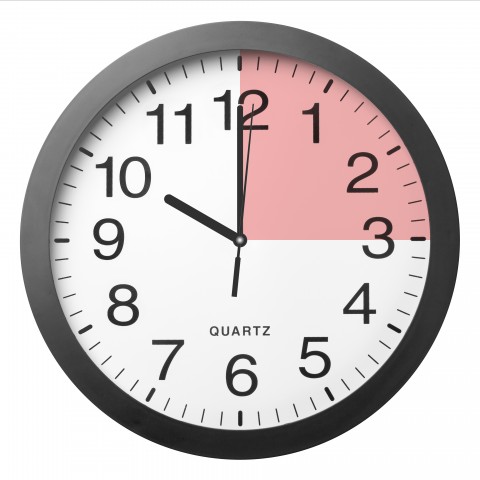
One of the wonderful things about studying a foreign language is that it’s not merely a matter of translating what you know from your mother tongue directly into the new language. This is especially true when the language you’re learning is linguistically unrelated to the one you already know. In the case of Hebrew and English, aside from a number of loanwords—a few words that entered English from Hebrew via the Old Testament and quite a number of English words adopted by Hebrew speakers in modernity—there’s little common ground between the two. As you’ll see, untranslatable Hebrew words are one area where you’ll notice these distinctions.
One thing that seems universal, even in the case of languages that do pertain to the same language family, is that each language is highly unique. After all, as linguistic creatures, we humans not only use language to give expression to our thoughts; it would seem that particular languages give rise to particular ways of thinking. If this were not true, why would languages borrow loanwords from one another? Clearly, in such cases, speakers of one language recognize that speakers of another have landed upon a nuanced idea or form of expression with no parallel in their native tongue. This is simply because some things are, as the expression goes, lost in translation.
But rather than viewing this as an obstacle to acquiring a foreign language, why not celebrate the unique identity of each individual language and its special way of expressing the world around us? Today’s lesson will examine the top 10 Hebrew words with no English equivalent. We’ll show you how to pronounce them, explain what they mean, and discuss when they should be used.
Start with a bonus, and download the Must-Know Beginner Vocabulary PDF for FREE! (Logged-In Member Only)
 Table of Contents
Table of Contents
- חבל על הזמן
- לפרגן
- דווקא
- לחיות בסרט / לאכול סרטים
- לחפור
- יש/אין מצב
- לעשות חיים
- על הפנים
- להתחדש
- חוצפה
- Let HebrewPod101 Help Translate the Untranslatable
1. חבל על הזמן

| עברית | חבל על הזמן |
| Transliteration | khaval ‘al ha-zman |
| Part of speech | adjectival phrase |
| Meaning | “the time is a shame” / “a shame for the time” |
| Usage | This phrase is used as a superlative to describe something so good, bad, crazy, etc., that it would be a shame to waste time elaborating or going into detail about how good, bad, crazy, etc. it is or was. |
| Sample sentence | היין הזה כל כך טעים, חבל על הזמן. Ha-yayin ha-zeh kol kakh ta’im, khaval ‘al ha-zman. “This wine is so good, I’m speechless.” |
2. לפרגן

| עברית | לפרגן |
| Transliteration | lefargen |
| Part of speech | verb |
| Meaning | “to delight in/congratulate/celebrate another’s success, achievements, etc.” |
| Usage | This one is approximately the opposite of Schadenfreude, the English loanword from German meaning to take delight in the suffering or setbacks of one’s enemy. This Hebrew verb refers to a state in which one enjoys and delights in another’s successes. |
| Sample sentence | למה אתה לא יכול לפרגן לי על ההעלאה במקום לקנא? Lamah atah lo yakhol lefargen li ‘al ha-ha’ala’ah bimkom lekane? “Why can’t you be happy for me over the promotion instead of being jealous?” |
3. דווקא
| עברית | דווקא |
| Transliteration | davka |
| Part of speech | adverb |
| Meaning | “specifically” / “intentionally” / “of all things” |
| Usage | Depending on the context, this adverb can be used to emphasize something in contrast to something else, to denote something that is not necessarily expected, or even to specify something done out of spite. |
| Sample sentence | את באמת עושה מסיבה מול הבית שלי דווקא ביום שאני מתחיל לשבת שבעה על אבא שלי? At ba-emet osah mesibah mul ha-bayit sheli davka ba-yom she-ani matkhil lashevet shiv’ah ‘al abba sheli? “Are you really going to host a party opposite my house on the day I started to mourn my father’s death, of all days?” |
4. לחיות בסרט / לאכול סרטים

| עברית | לחיות בסרט / לאכול סרטים |
| Transliteration | likhyot be-seret / le’ekhol sratim |
| Part of speech | phrasal verb |
| Meaning | “to live in the movies” / “to eat movies” |
| Usage | Both variations have roughly the same meaning, somewhat akin to having one’s head in the clouds, being in La-La Land, etc. |
| Sample sentence | אם אתם חושבים שאני אשלם כפול בגלל שהגעתם שניכם לעבודה לבנאדם אחד, אתם אוכלים סרטים. Im atem khoshvim she-ani ashalem kaful biglal she-higa’tem shneikhem le-’avodah le-benadam ekhad, atem okhlim sratim.“If you think that I’m going to pay double because two of you showed up to a job for one person, you must be dreaming.” |
5. לחפור

| עברית | לחפור |
| Transliteration | lakfor |
| Part of speech | verb |
| Meaning | “to dig” / “to excavate” |
| Usage | Though literally meaning “to dig,” this verb is used figuratively to refer to a situation in which someone talks excessively, overwhelms someone else, or drives someone else crazy with an abundance and/or intensity of information, requests, criticisms, etc. It’s similar to “driving someone crazy” in English. |
| Sample sentence | הבנתי כבר שאתה רוצה לאכול! אני כבר מזמין פיצה. די לחפור! Hevanti kvar she-atah rotzeh le’ekhol! Ani kvar mazmin pitzah. Dai lakfor! “I got it: You want to eat! I’m already ordering a pizza right now. Stop driving me crazy!” |
6. יש/אין מצב
| עברית | יש/אין מצב |
| Transliteration | yesh/en matzav |
| Part of speech | subject-predicate |
| Meaning | “a situation exists” / “a situation does not exist” |
| Usage | Though roughly equivalent to “there’s a chance” or “there’s no chance,” this phrase is used much more commonly in Hebrew than its English parallels. The affirmative form is a noncommittal way of expressing possibility, while the negative form can be used to express incredulity. |
| Sample sentence | -את באה ליום הסטודנט? -יש מצב. -At ba’ah le-Yom ha-Studen? –Yesh matzav. “Are you coming to Students’ Day?” -“Could be.” –אין מצב! מישהו שרט לי את האוטו. En matzav! Mishehu sarat li et ha-oto. “No way! Someone scratched my car.” |
7. לעשות חיים

| עברית | לעשות חיים |
| Transliteration | la’asot khayim |
| Part of speech | phrasal verb |
| Meaning | “to make a life” |
| Usage | While this phrase is also used to express getting by or making a living, it’s more commonly used to wish someone a good time, especially when used in the imperative form. |
| Sample sentence | איזה כיף לכם שאתם טסים לפריז. תעשו חיים שם! Eizeh kef lakhem she-atem tasim le-Pariz. Ta’asu khayim sham! “How fun that you’re flying to Paris. Have fun there!” |
8. על הפנים

| עברית | על הפנים |
| Transliteration | ‘al ha-panim |
| Part of speech | adjectival/adverbial phrase |
| Meaning | “on the face” |
| Usage | Though the origins of this phrase are unclear, they may come from the visualization of falling flat on one’s face as a particularly bad situation. Whatever its etymology may be, this phrase is used to describe any terrible, awful, or horrible thing or person. |
| Sample sentence | סמוך עליי: אל תקנה את המודל הזה. הפלאפון הזה פשוט על הפנים. Smokh ‘alai: al tikneh et ha-model ha-zeh. Ha-pelefon ha-zeh pashut ‘al ha-panim. “Trust me: Don’t buy this model. That cell phone is simply junk.” |
9. להתחדש
| עברית | להתחדש |
| Transliteration | lehitkhadesh |
| Part of speech | verb |
| Meaning | “to renew oneself” / “to be renewed” |
| Usage | This untranslatable Hebrew word is a reflexive verb that may have its roots in traditional religious Jewish culture, which includes the custom of saying a special blessing (שהחיינו, She-Hekhiyanu, “Who Has Given Us Life”) to celebrate renewal during any special occasion: holidays, eating a seasonal fruit for the first time that year, etc. By extension, it’s common in modern Israeli culture—secular or religious—to tell someone “to renew oneself” in the sense of celebrating a new purchase, hairstyle, relationship, and so on. The imperative form is used almost invariably in this context. |
| Sample sentence | וואו, איזו שמלה יפה קנית. תתחדשי! Wau, eizo simlah yafah kanit. Titkhadshi! “Wow, what a lovely dress you bought. Enjoy it in good health!” |
10. חוצפה

| עברית | חוצפה |
| Transliteration | khutzpah |
| Part of speech | noun |
| Meaning | “nerve” / “gall” / “cojones” |
| Usage | This is the only item in today’s lesson likely to be at all familiar to English speakers. This is, however, due to its entry into English via Yiddish, rather than Hebrew (notwithstanding the fact that the pronunciation is almost the same and that the word is originally from Hebrew, on which Yiddish is largely based). While it’s approximately equivalent to the parallels offered above (nerve, gall, and cojones), this Hebrew word has a connotation of intentionality or brazenness; this makes it that much more offensive to be accused of! At the same time, it’s also an integral part of the Israeli character, being a bit ruder and more direct than most cultures would consider normal. As a matter of fact, if you listen carefully, you’ll hear Israelis accusing ourselves of חוצפה on a daily basis, almost as if it were a national sport! |
| Sample sentence | איזה חוצפה יש לאקס שלך להגיע לחתונה שלנו בלי הזמנה! Eizeh khutzpah yesh la-eks shelakh lehagi’a la-khatunah shelanu bli hazmana! “What gall your ex has to show up at our wedding without being invited!” |
11. Let HebrewPod101 Help Translate the Untranslatable
Well, there you have it. The top 10 untranslatable Hebrew words.
We hope you not only enjoyed familiarizing yourself with these words and phrases, but that you also realized that even when there is no exact equivalent of a Hebrew term or expression, it’s entirely possible to understand its meaning and usage. While it’s true that languages tend to have at least some percentage of vocabulary that does not carry over well in translation, your job as a language learner is not to translate, but to assimilate!
This means that you don’t need—nor should you seek—a one-to-one translation for every single word and phrase. Rather, it’s much more effective to try your best to think in Hebrew when studying or practicing it, and to set English aside as much as possible. In other words, as long as you can understand what a word or phrase means in the context of the Hebrew language and can utilize it correctly when necessary, you’re set!
As a matter of fact, studies have shown that those language learners who tend to get caught up on words until they find an exact equivalent in their native tongue have more difficulty progressing with their studies. This is actually quite intuitive, considering the unique nature of every language and the fact that, as today’s lesson should demonstrate, some words simply do not have an equivalent in English.
Have you come across any untranslatable words in Hebrew that we didn’t cover today? Are you still a bit unsure of how to use one of the words we did discuss in today’s lesson? That’s what we’re here for. At HebrewPod101.com, we’re always happy to hear from our many students across the globe, so don’t hesitate to reach out with any questions or doubts you may have. We look forward to hearing from you.
Until next time, shalom!
Start with a bonus, and download the Must-Know Beginner Vocabulary PDF for FREE! (Logged-In Member Only)










